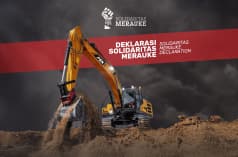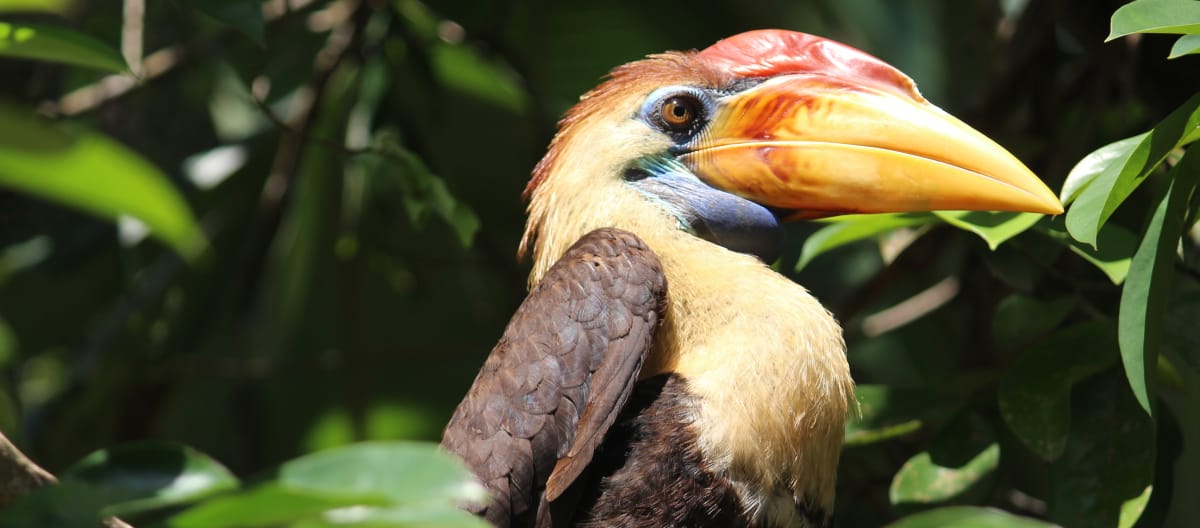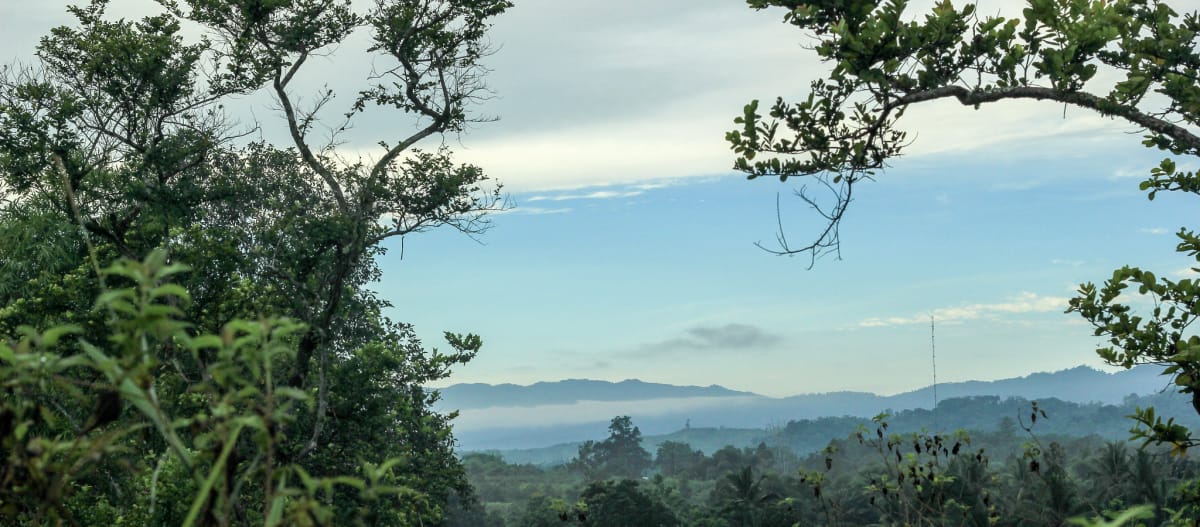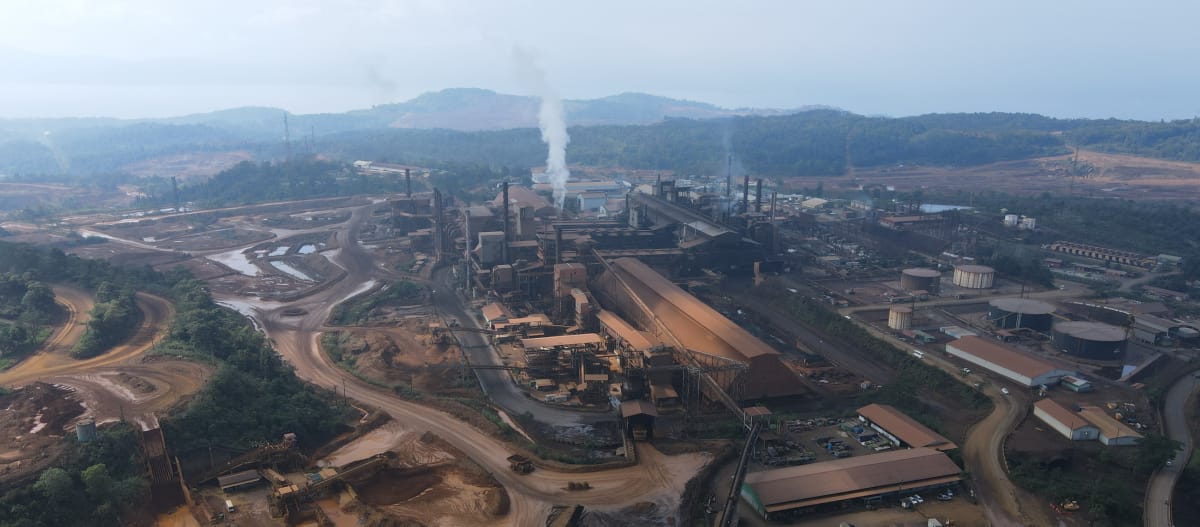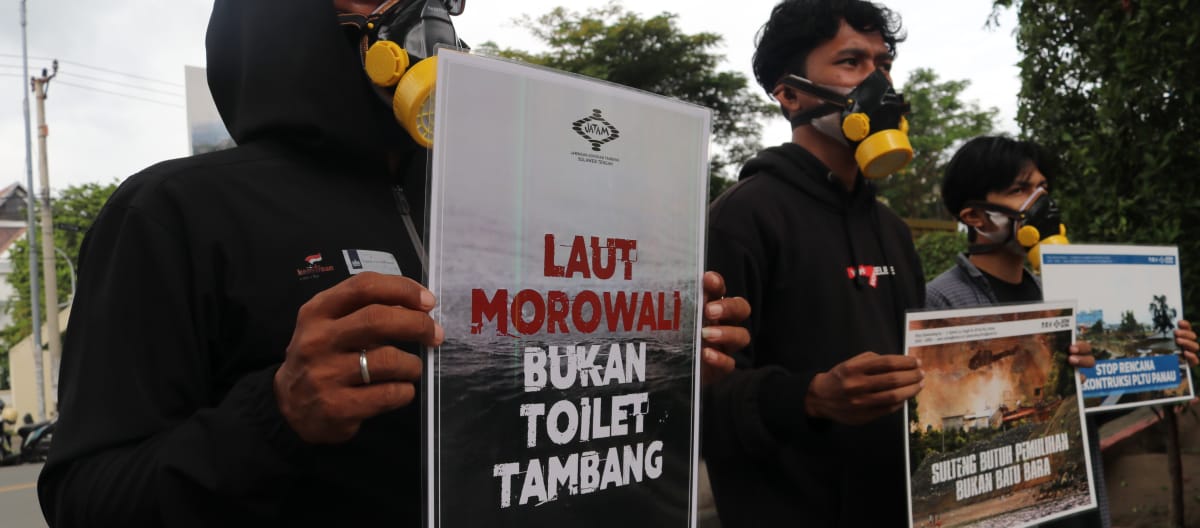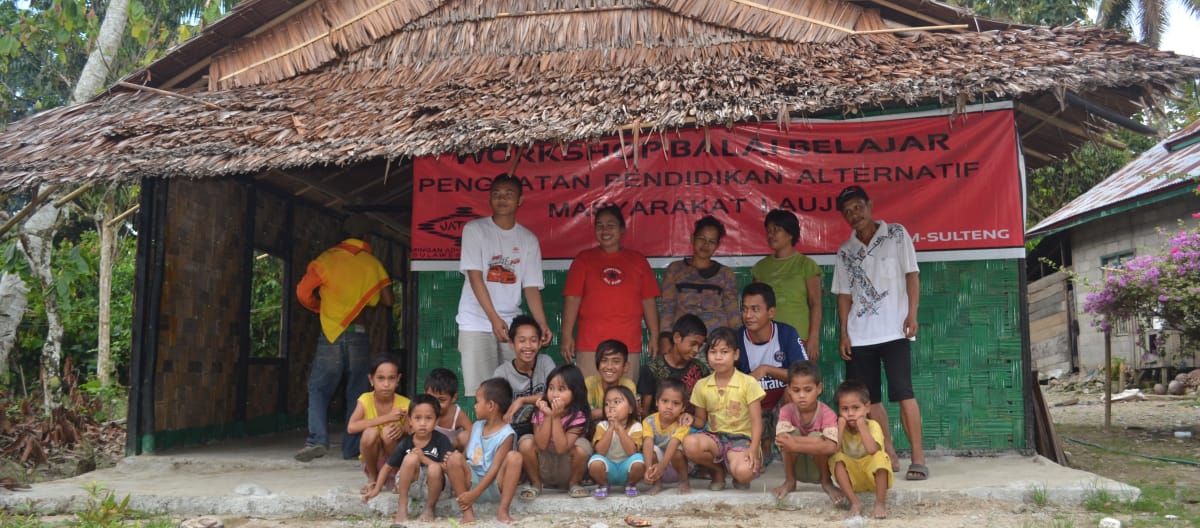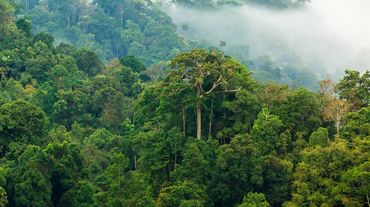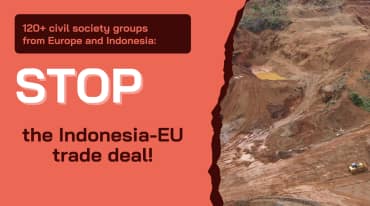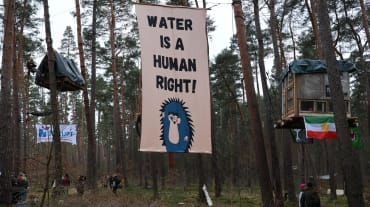Resisting mining in Sulawesi
Mining for gold, nickel, sand and minerals is devastating the natural paradise of Sulawesi, Indonesia. The JATAM Sulteng anti-mining network is fighting back with lawsuits and campaigns.
Project Overview
Project FocusEcosystems
Project Objective stopping mining, securing Indigenous rights, protecting biodiversity
Activities lawsuits, demonstrations, raising awareness
Sulawesi’s natural wealth
Sulawesi, which lies like a curling starfish in the Pacific Ocean, is one of the richest and most beautiful islands in the Indonesian archipelago. It is blessed with natural treasures both above and below ground. The island owes its charm to some 6,000 kilometers of coastline and a diverse mountainous interior, and its unique character to the volcanic “Ring of Fire” where the Eurasian and Indo-Australian tectonic plates meet.
Its mountain and mangrove forests, sea and coral reefs are the home to animal and plant species found nowhere else on the planet. Protected areas such as Lore Lindu National Park and Morowali Nature Reserve are home to rare endemic species such as the one-meter dwarf buffalo and the tarsier. Dozens of Indigenous peoples, such as the Lauje in the mountains of Central Sulawesi or the Taa Ta Wana, have used their traditional lands wisely.
The many Indigenous groups live off the fruits of the forest and sell cinnamon, rattan and resin. The rivers are teeming with fish. But now many forests are being cut down, waters polluted and fields buried under landslides: Sulawesi’s wealth of gold and copper, nickel and iron, sand and limestone is attracting investors. But the extraction of natural resources is not bringing prosperity: Mining is destroying people’s livelihoods.
Gold and copper, nickel and cobalt, sand and stone
Twenty years ago, JATAM Sulteng contacted Rainforest Rescue. JATAM is an Indonesian network of many groups working against the negative impacts of mining. Sulteng stands for Central Sulawesi, the province overrun by mining companies. JATAM Sulteng is one of Rainforest Rescue’s oldest partners.
“Help us! Gold mining is destroying Poboya Nature Reserve!” JATAM Sulteng wrote at the time. Illegal mining gangs were extracting gold from the mountains near the capital, Palu, using mercury, which was flowing freely into the bay. Not far away, large companies were using cyanide to extract gold.
A further problem is large-scale sand mining for Indonesian and foreign infrastructure projects. Sand mining is causing a “global environmental crisis that you’ve probably never heard of,” wrote the Guardian in early 2017. Sand and gravel are being dug up at an unprecedented rate around the world, and Sulawesi’s coasts, rivers and limestone mountains are feeling the effects. The sand is mainly used to make concrete to build the many new ports and roads in Indonesia and Singapore, paving the way for the exploitation of previously inaccessible areas.
Sulawesi has changed dramatically since the importance of nickel and cobalt exploded with increasing digitalization and the rise of electric vehicles. Hundreds of mines have sprung up. In the Morowali and Gunbuster Special Industrial Zones, Chinese companies process nickel ore and dump their tailings into the sea – the coral-rich “Golden Triangle”. Forests are being destroyed, along with the homes of forest communities and the habitat of wildlife.
JATAM: “Mining is destroying our lives!”
JATAM Sulteng is the main point of contact in Palu for those suffering under the exponentially increasing exploitation of natural resources. As a network of environmental, human rights, legal aid and Indigenous groups, JATAM Sulteng covers many areas.
The organization is particularly strong in litigation, as many of its staff are lawyers and experienced in exposing illegal activities. Virtually none of the many companies involved in resource extraction are law-abiding: Whether they are operating illegally, falsifying their environmental impact assessments or “greasing palms” for their permits – JATAM Sulteng exposes their shady dealings and brings the perpetrators to justice with an impressive success rate. Often enough, however, the activists themselves are criminalized, arrested and imprisoned.
JATAM Sulteng addresses politicians and the public. It organizes demonstrations, feeds the press with sensational discoveries and demands that politicians adopt environmentally and socially responsible economic policies.
The organization is also a strong advocate for the Indigenous people living in the mountains, who often have no access to education or healthcare. Indigenous people are often unaware of the implications of exploratory drilling in their forests, or of their right to free, prior, informed consent. JATAM Sulteng is addressing these deficits by running three alternative schools for the Indigenous Lauje people in the mountains, where activists teach reading, writing, arithmetic and environmental knowledge.


